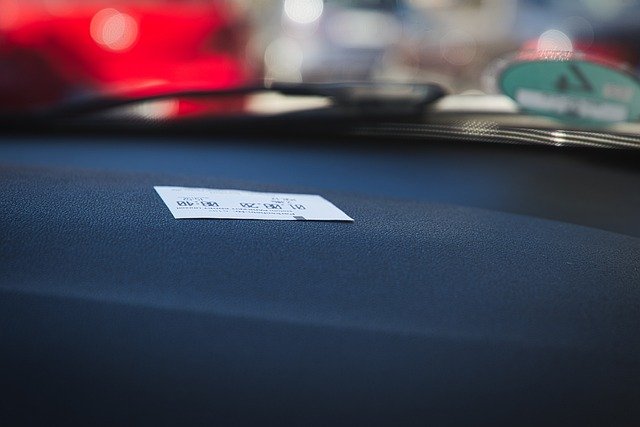A Practical Guide to Pay Monthly Van Options in the UK
Looking into vans with monthly payments in the UK? This guide explains how fixed monthly van financing works and what to consider before choosing an option—whether you're a tradesperson, business owner, or individual exploring flexible access to a vehicle. From lease plans to hire purchase and PCP, this overview helps you understand key terms, ownership models, and budget factors, including information relevant for those with varying credit backgrounds.

What are the main types of pay monthly van deals?
Pay monthly van deals in the UK typically fall into three main categories: lease plans, hire purchase agreements, and Personal Contract Purchase (PCP). Each option has its own advantages and considerations:
-
Lease plans: These involve renting a van for a fixed period, usually 2-5 years, with monthly payments. At the end of the term, you return the vehicle.
-
Hire purchase: You pay monthly installments towards owning the van. Once all payments are made, the van becomes yours.
-
PCP: Similar to leasing, but with the option to buy the van at the end of the term for a pre-agreed “balloon payment.”
How does van leasing work in the UK?
Van leasing in the UK is a popular option for businesses and individuals looking for flexibility. When you lease a van, you essentially rent it for a fixed period, typically 2-5 years. The process usually involves:
-
Choosing a van and lease term
-
Paying an initial rental (often equivalent to 3-6 months’ payments)
-
Making fixed monthly payments for the duration of the lease
-
Returning the van at the end of the term
Leasing often includes maintenance packages and road tax, making it a convenient option for those who want hassle-free van use without long-term commitment.
What are the benefits of cheap van lease deals?
Cheap van lease deals can offer several advantages for businesses and individuals:
-
Lower initial costs compared to buying outright
-
Fixed monthly payments for easier budgeting
-
Access to newer models with up-to-date technology and safety features
-
Potential tax benefits for businesses
-
Flexibility to upgrade to a new van at the end of the lease term
However, it’s important to remember that “cheap” doesn’t always mean the best value. Consider factors like mileage allowances, maintenance costs, and end-of-lease charges when comparing deals.
How do van finance options differ from leasing?
While leasing and financing both offer ways to pay monthly for a van, there are key differences:
-
Ownership: With financing options like hire purchase, you’ll own the van at the end of the term. Leasing doesn’t lead to ownership.
-
Length of commitment: Finance agreements often have longer terms than leases, sometimes up to 7 years.
-
Maintenance responsibility: Financed vans are typically your responsibility to maintain, while leases often include maintenance packages.
-
Flexibility: Leasing offers more flexibility to change vehicles regularly, while financing is better if you plan to keep the van long-term.
-
Costs: Financing usually results in higher monthly payments but leads to ownership, while leasing payments are often lower but you never own the vehicle.
What should you consider before choosing a pay monthly van deal?
Before committing to a pay monthly van deal, consider the following factors:
-
Your long-term needs: Will you need the van for several years, or is short-term flexibility more important?
-
Mileage requirements: Most lease deals have mileage limits, with charges for exceeding them.
-
Budget: Consider not just the monthly payment, but also insurance, fuel, and potential maintenance costs.
-
Business use: If you’re using the van for business, explore potential tax benefits of different options.
-
Credit score: Your credit rating can affect the deals available to you and the interest rates offered.
-
Residual value: For PCP deals, consider the projected value of the van at the end of the term if you’re interested in buying it outright.
How do costs compare across different pay monthly van options?
When considering pay monthly van options, it’s crucial to compare the overall costs. Here’s a comparison of typical costs for different financing methods:
| Option | Provider Example | Estimated Monthly Cost | Additional Costs |
|---|---|---|---|
| Leasing | LeasePlan | £200 - £400 | Potential excess mileage charges |
| Hire Purchase | Close Brothers | £250 - £500 | Maintenance and repairs |
| PCP | Volkswagen Financial Services | £180 - £350 | Optional balloon payment |
Prices, rates, or cost estimates mentioned in this article are based on the latest available information but may change over time. Independent research is advised before making financial decisions.
These estimates are based on a mid-range van over a 3-year term. Actual costs can vary significantly based on the specific van model, your credit score, and the terms of the agreement. It’s essential to get personalized quotes and read the fine print before committing to any pay monthly van deal.
In conclusion, pay monthly van options in the UK offer flexible solutions for accessing commercial vehicles without large upfront costs. Whether you choose leasing, hire purchase, or PCP depends on your specific needs, budget, and long-term plans. By carefully considering the pros and cons of each option and comparing real costs, you can find the best deal to keep your business or personal projects moving forward.




